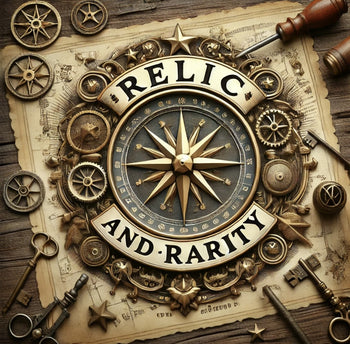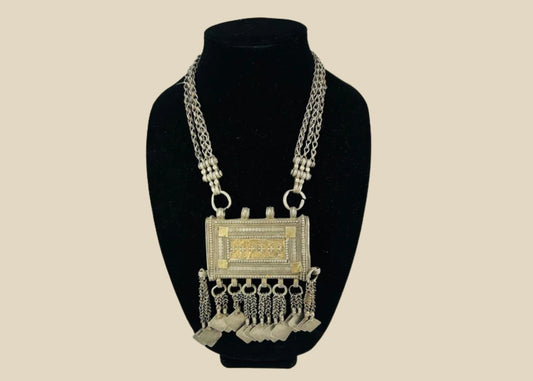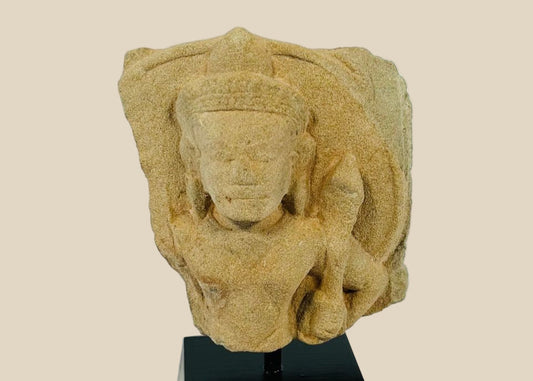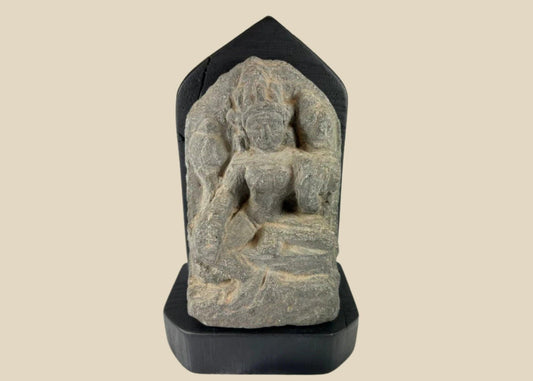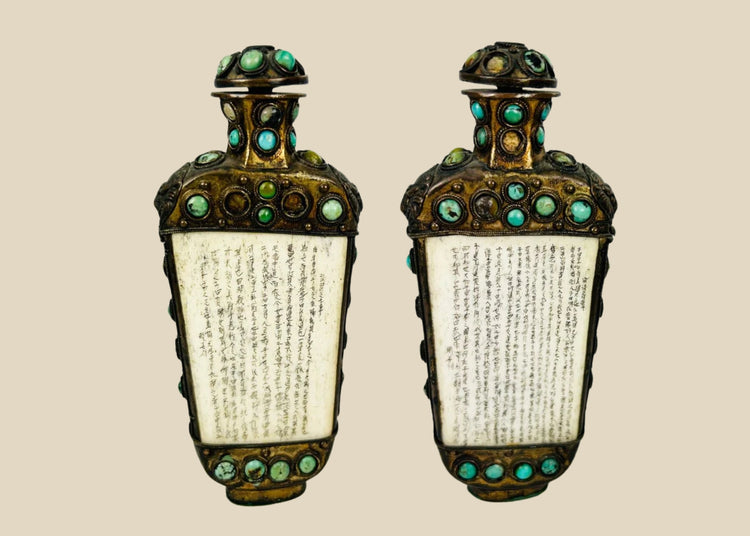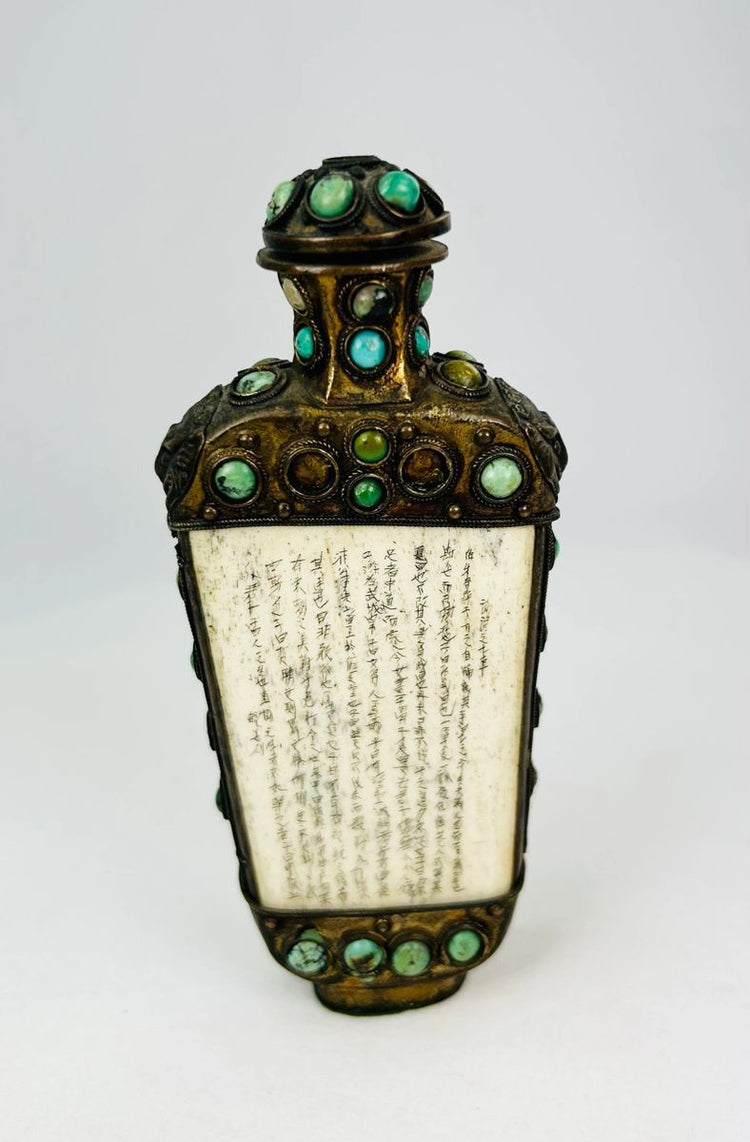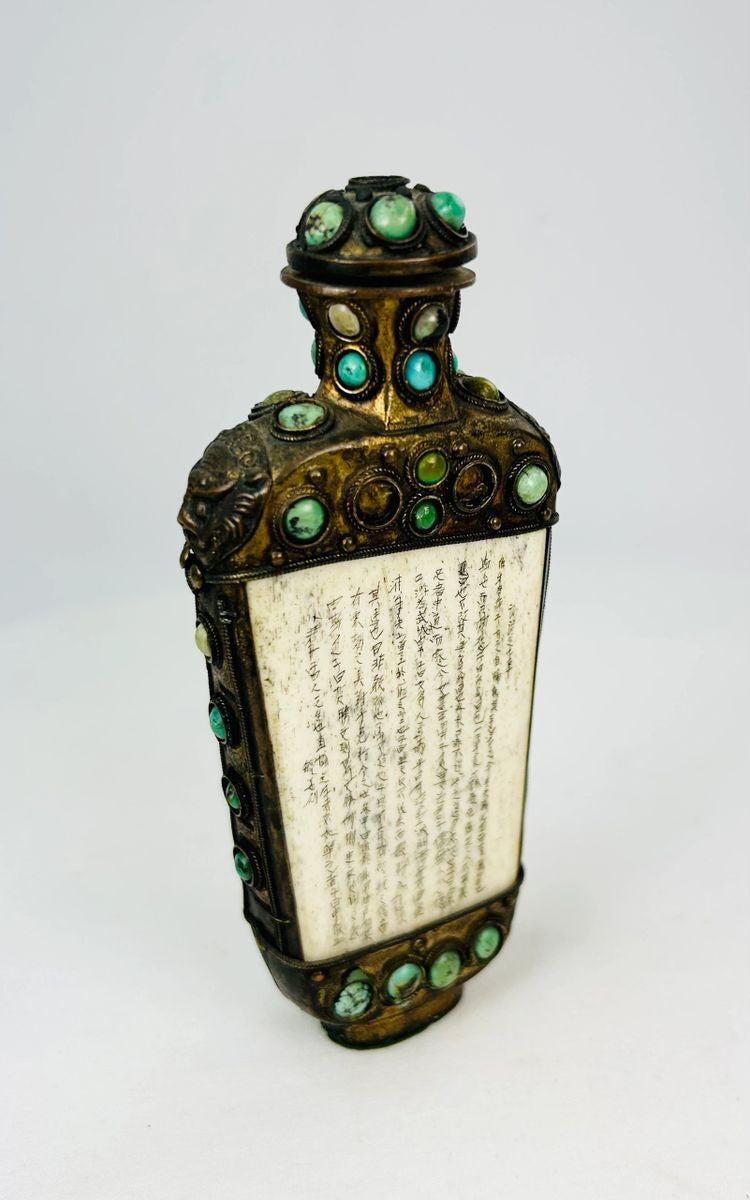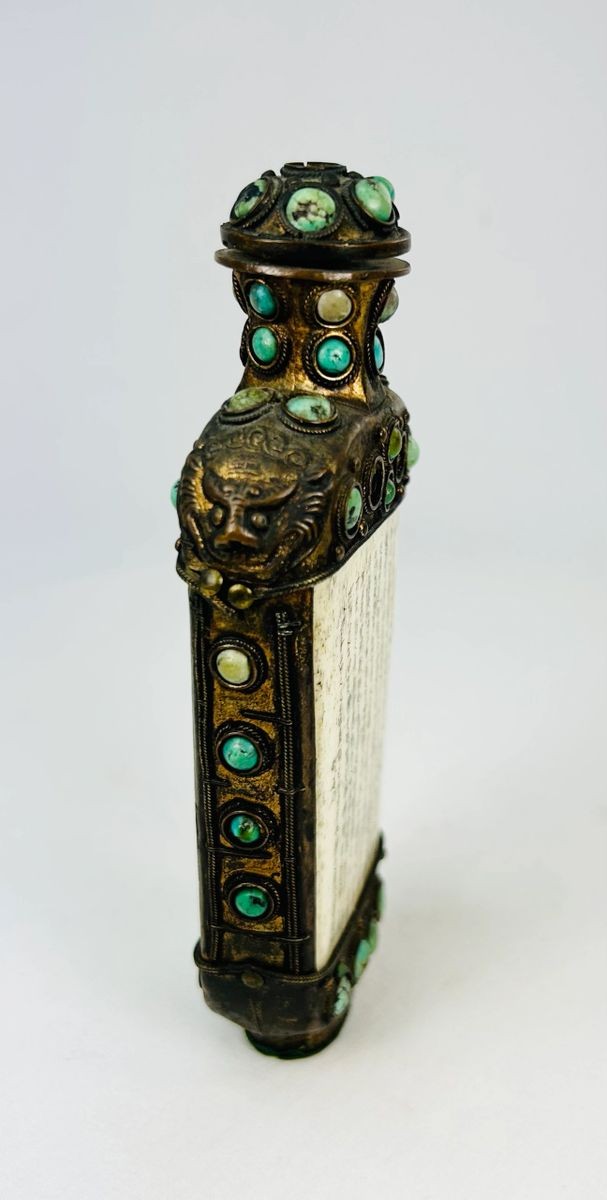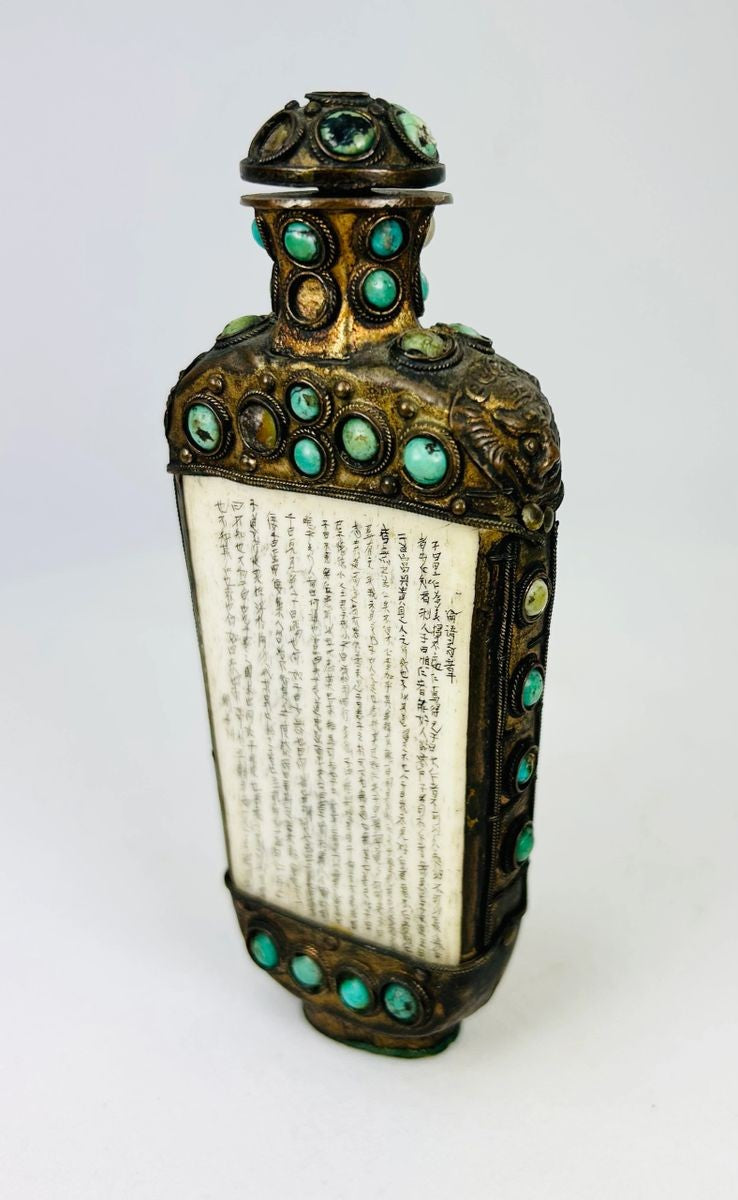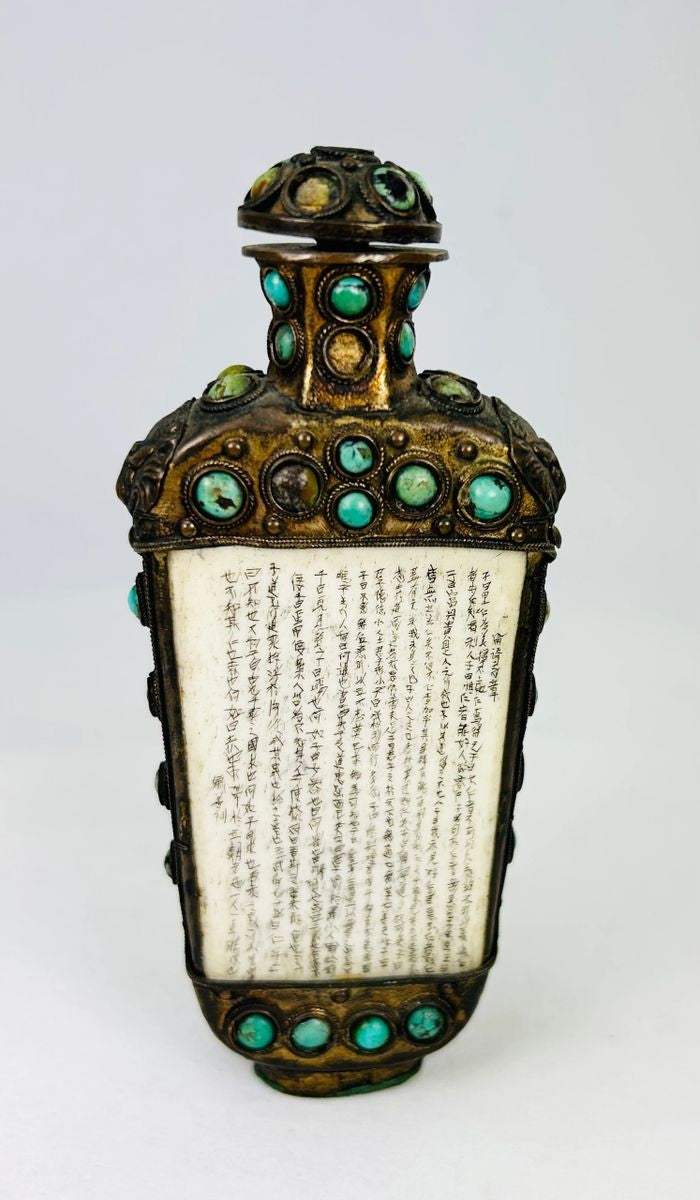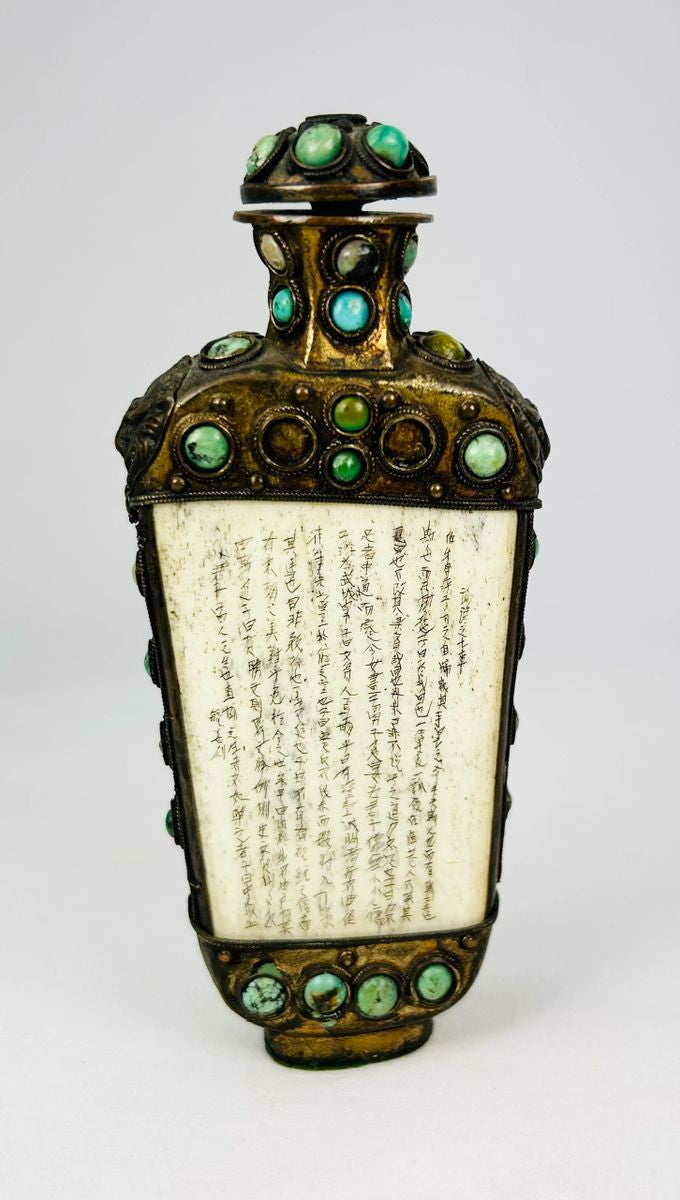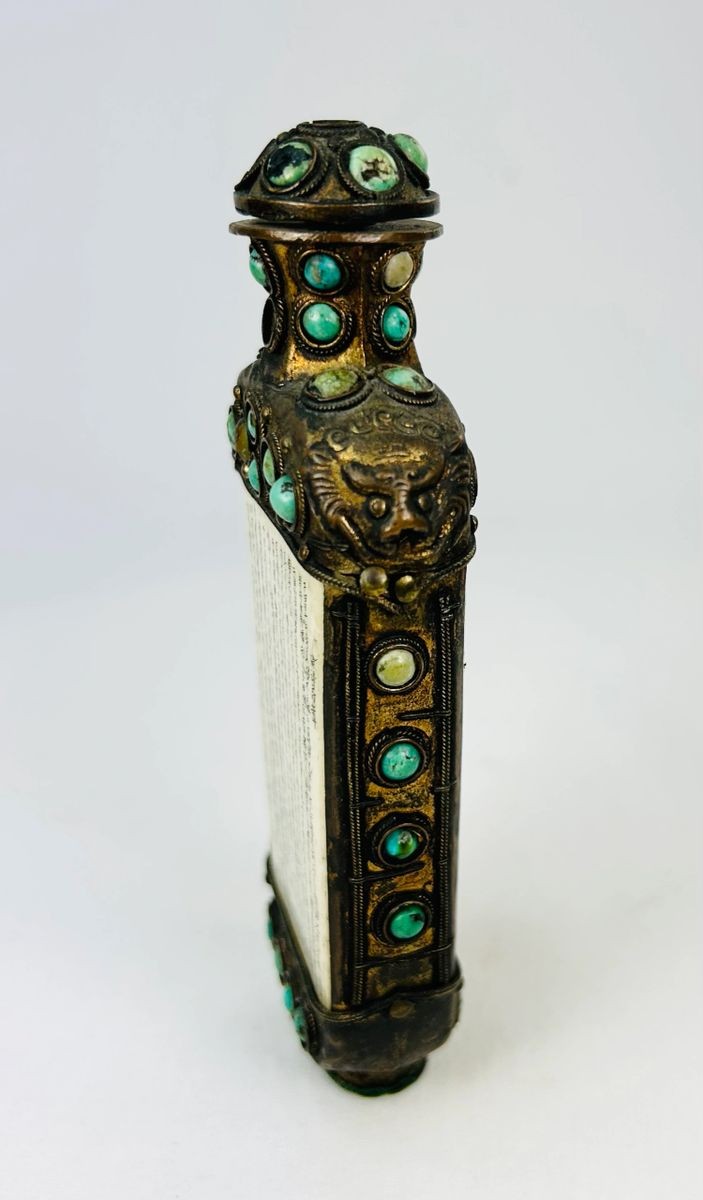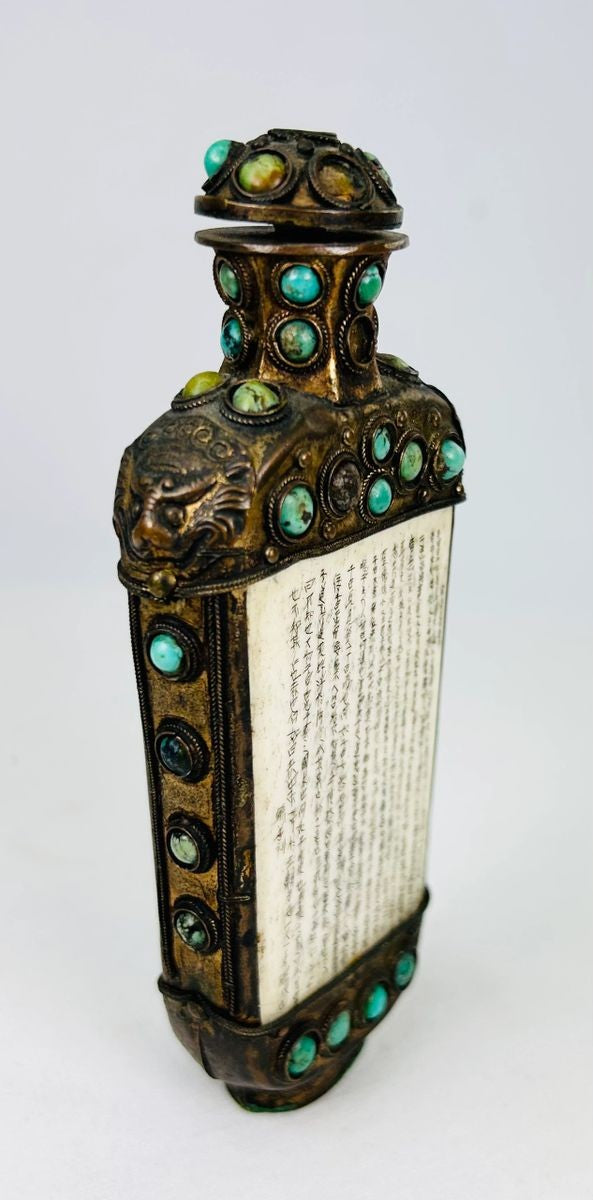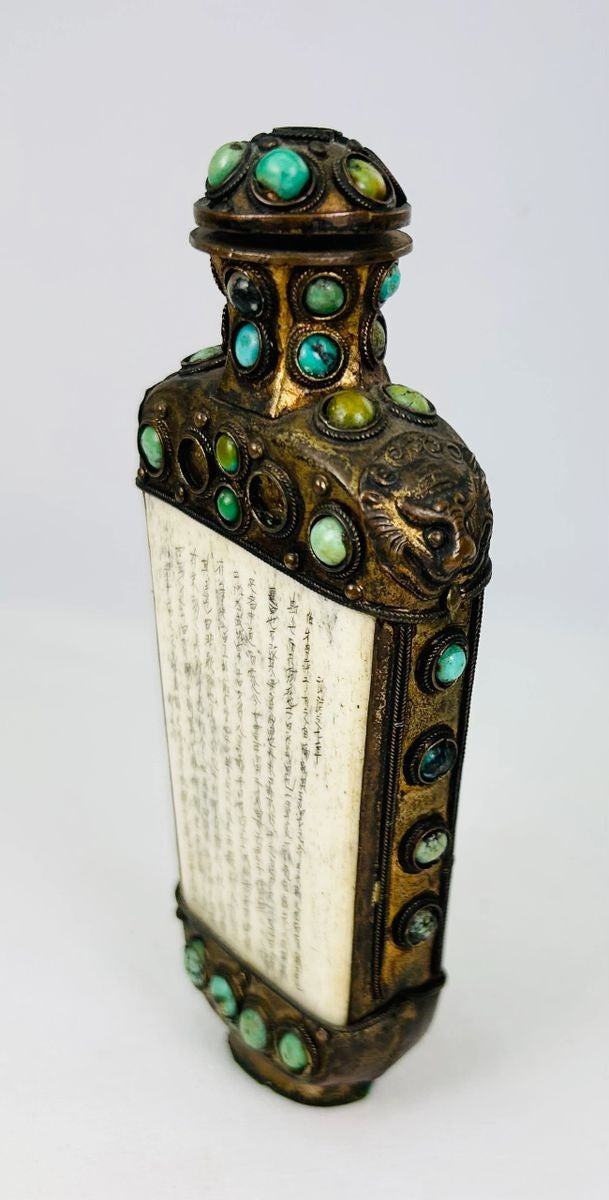Qing-Era Sino-Tibetan Ritual Vessel | Bronze Flask with Turquoise and Guardian Lions | Circa Late 19th Century
Description
More
Less
Historical Context & Origin
Region: Sino-Tibetan border region (Qing Dynasty influence)
Material: Bronze alloy with turquoise and green stone inlays, carved bone/ivory panels, and chased detailing
Period: Circa late 19th century (Qing Period)
Description
This exceptional ritual flask reflects the fusion of Chinese and Tibetan craftsmanship during the late Qing Dynasty. The bronze body is fully adorned with cabochon turquoise and green stones, mounted in repeating circular settings across its surface. Vertical panels inscribed with dense Tibetan or Sanskrit Buddhist text, likely drawn from a sutra or mantra, emphasize its spiritual function. Protective guardian lion masks project from the corners in high relief, reinforcing its sacred symbolism. The domed lid, also decorated with stone inlays, fits securely and continues the ornate design. Likely intended for monastic or ceremonial use, the flask may have contained relics, offerings, or sacred substances, serving both as a devotional object and as a symbol of religious authority.
Features
- Cabochon turquoise and green stone inlays covering the body and lid
- Panels of hand-engraved Buddhist script (Tibetan or Sanskrit)
- Guardian lion masks in relief, symbolizing spiritual protection
- Rich patination with traces of original gilding
- Tapered ritual form reflecting high ceremonial use
Cultural Significance
During the Qing Dynasty, Tibetan Buddhism flourished under imperial patronage, fostering the creation of richly decorated ritual objects that blended Tibetan spiritual traditions with Chinese artistry. Ritual flasks such as this were prized in temples and monasteries, held by senior lamas, or exchanged as high-value devotional gifts. They symbolized both devotion and status, functioning as sacred containers while embodying the syncretic religious identity of the Sino-Tibetan cultural sphere.
Condition
Excellent antique condition. Natural wear to patina and inlays consistent with age. Minor surface abrasions present, but inscriptions and decorative details remain sharp and well-preserved. No major losses or repairs.
Dimensions (approximate)
Height: 5 in
Width: 2.5 in
Age
Estimated 100–150 years old — Late Qing Dynasty, circa late 19th century
Description
Historical Context & Origin
Region: Sino-Tibetan border region (Qing Dynasty influence)
Material: Bronze alloy with turquoise and green stone inlays, carved bone/ivory panels, and chased detailing
Period: Circa late 19th century (Qing Period)
Description
This exceptional ritual flask reflects the fusion of Chinese and Tibetan craftsmanship during the late Qing Dynasty. The bronze body is fully adorned with cabochon turquoise and green stones, mounted in repeating circular settings across its surface. Vertical panels inscribed with dense Tibetan or Sanskrit Buddhist text, likely drawn from a sutra or mantra, emphasize its spiritual function. Protective guardian lion masks project from the corners in high relief, reinforcing its sacred symbolism. The domed lid, also decorated with stone inlays, fits securely and continues the ornate design. Likely intended for monastic or ceremonial use, the flask may have contained relics, offerings, or sacred substances, serving both as a devotional object and as a symbol of religious authority.
Features
- Cabochon turquoise and green stone inlays covering the body and lid
- Panels of hand-engraved Buddhist script (Tibetan or Sanskrit)
- Guardian lion masks in relief, symbolizing spiritual protection
- Rich patination with traces of original gilding
- Tapered ritual form reflecting high ceremonial use
Cultural Significance
During the Qing Dynasty, Tibetan Buddhism flourished under imperial patronage, fostering the creation of richly decorated ritual objects that blended Tibetan spiritual traditions with Chinese artistry. Ritual flasks such as this were prized in temples and monasteries, held by senior lamas, or exchanged as high-value devotional gifts. They symbolized both devotion and status, functioning as sacred containers while embodying the syncretic religious identity of the Sino-Tibetan cultural sphere.
Condition
Excellent antique condition. Natural wear to patina and inlays consistent with age. Minor surface abrasions present, but inscriptions and decorative details remain sharp and well-preserved. No major losses or repairs.
Dimensions (approximate)
Height: 5 in
Width: 2.5 in
Age
Estimated 100–150 years old — Late Qing Dynasty, circa late 19th century
You May Also Like
